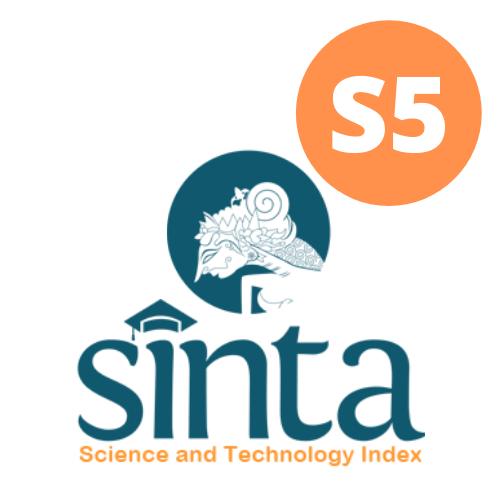Analysis of Jakarta Provincial Government Budget System Implementation
Abstract
Technology has now reached its fourth stage, known as the Industrial Revolution 4.0, which is marked by the development of sensor technology and the digitalization era. One of the innovations made by the Provincial Government in the era of the Industrial Revolution 4.0, was the implementation of ERP using e-Monev and LPSE. This type of research uses a qualitative approach with a descriptive research design. Data collection was carried out trough in-depth interviews and document analysis. Data analysis used a content analysis approach. Understanding of budget allocations made by the DKI Jakarta Provincial Government, experiences and views of stakeholders regarding the implementation of the DKI Jakarta Provincial Government budget system, efficiency and effectiveness of the budget system in managing public finances, as well as supporting factors, obstacles, and challenges in the preparation and implementation of the system budget. A significant budget allocation for priority sectors, namely education and infrastructure. There are also challenges in controlling operational spending, and the need to improve performance indicators to more accurately measure the achievement of regional development goals. The implication of this research is to increase transparency, accountability, and effectiveness of budget management in the Provincial Government of DKI Jakarta.
References
[2] Andriyanto, Dicky, Baridwan, Zaki, & Subekti, Imam. (2019). Anteseden Perilaku Penggunaan E- Budgeting: Kasus Sistem Informasi Keuangan Desa Di Banyuwangi, Indonesia. Jurnal Dinamika Akuntansi Dan Bisnis, 6(2), 151–170.
[3] Khoirunnisak, Rizka, Arishanti, Desy, & Vebrianti, Dien Dadeka. (2018). Penerapan E- Budgeting Pemerintah Kota Surabaya Dalam Mencapai Good Governance. Unej E-Proceeding, 249–256.
[4] Venkatesh, Viswanath, Morris, Michael G., Davis, Gordon B., & Davis, Fred D. (2003). User Acceptance Of Information Technology: Toward A Unified View. Mis Quarterly, 425–478.
[5] Zarnelly, Zarnelly. (2017). Sistem Informasi E- Budgeting Menggunakan Pendekatan Berorientasi Objek (Studi Kasus: Uin Suska Riau). Jurnal Ilmiah Rekayasa Dan Manajemen Sistem Informasi, 3(1), 70–77.
[6] Prasetyo, Kurniawan. (2016). Koalisi Dominan Humas Dpr-Ri Sebagai Boundary Spanner Dalam Mewujudkan Good Governance Melalui Informasi Publik. Jurnal Media Kom, 6(2), 16–30.
[7] Mangan, Paul R., Harrington, Laurie E., O’quinn, Darrell B., Helms, Whitney S., Bullard, Daniel C., Elson, Charles O., Hatton, Robin D., Wahl, Sharon M., Schoeb, Trenton R., & Weaver, Casey T. (2006). Transforming Growth Factor-Β Induces Development Of The Th 17 Lineage. Nature, 441(7090), 231–234.
[8] Khotimah, Nurul., Retno Sunu Astuti. 2020. Penerapan Sistem E-Budgeting sebagai bentuk pemanfaatan teknologi pada era revolusi industri 4.0. Prosiding Simposium Nasional ISBN : 978-60273470-5-2

This work is licensed under a Creative Commons Attribution 4.0 International License.
















